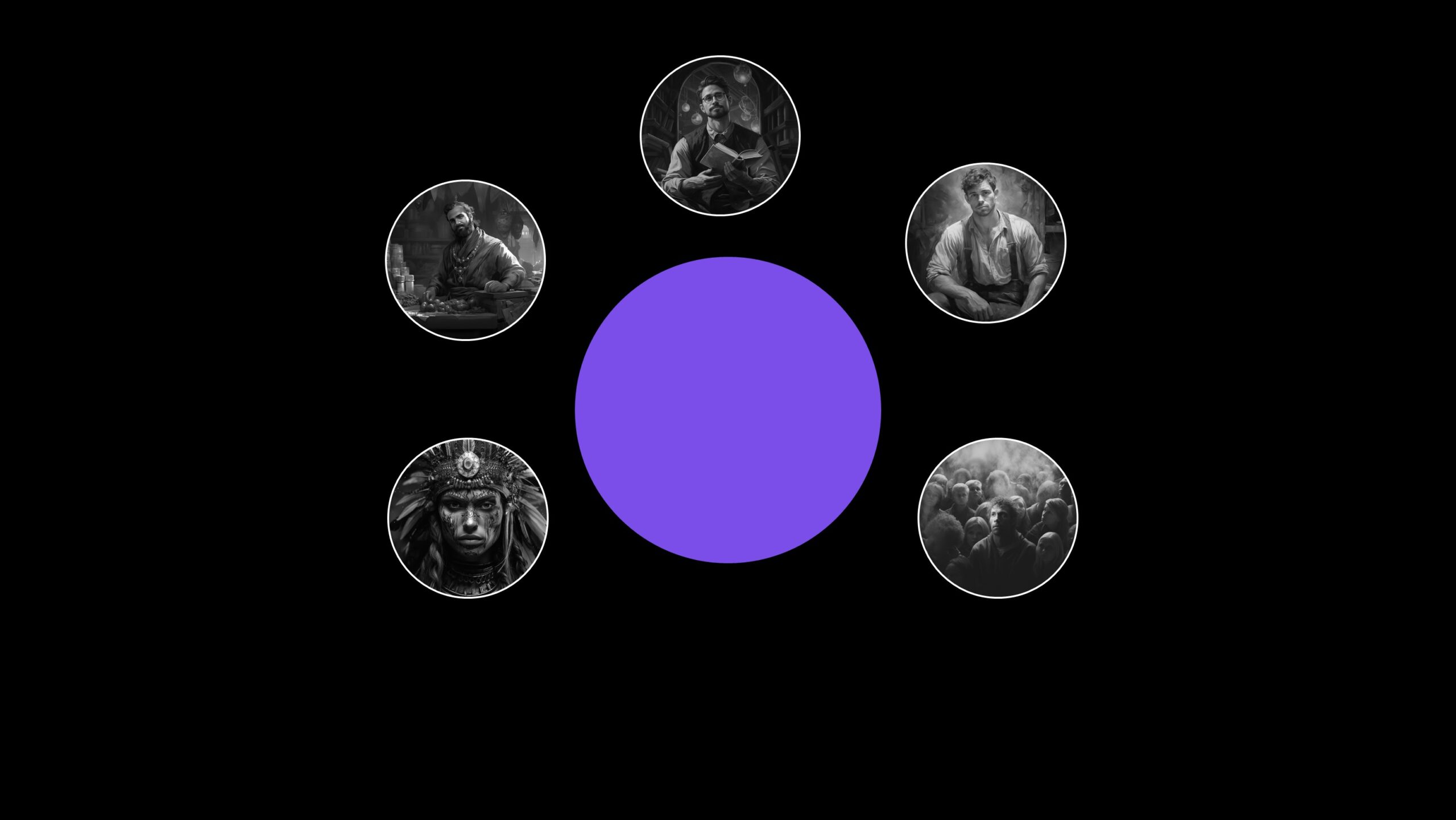Article last updated on August 14, 2023
There are different dharma types, or spiritual paths, that people can take to find their true purpose in life.
The five main types of dharma are Warrior, Educator, Merchant, Laborer, Outsider. Each type offers its own unique approach to personal growth and self-realization.
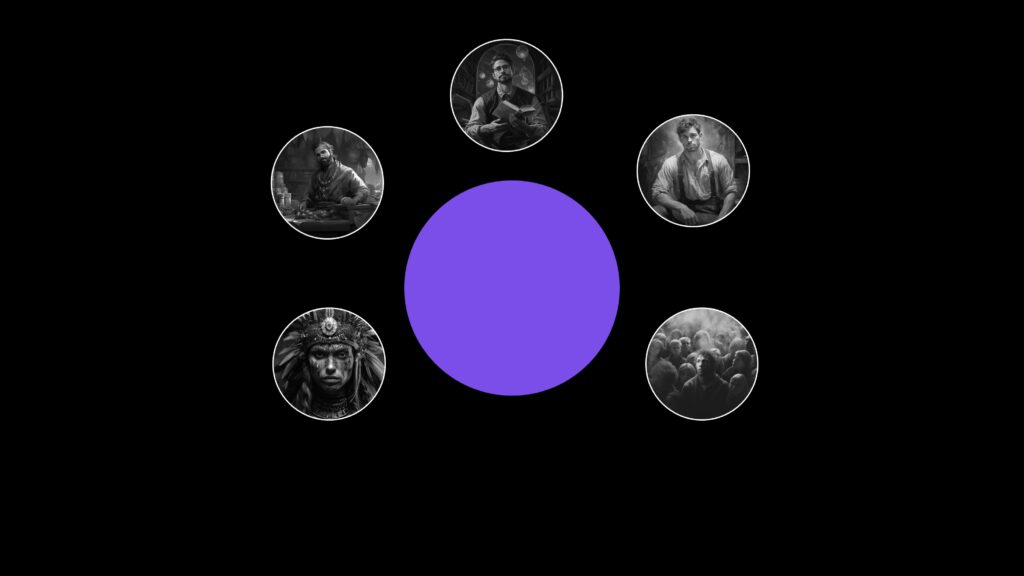
Discovering your dharma type can be a transformative journey of self-discovery.
By understanding your unique gifts and talents, you can align your life with your true purpose and find greater meaning and fulfillment.
This guide will provide you with valuable insights and practical tips for uncovering your dharma type and living a life of purpose and meaning.
Whether you’re seeking clarity in your career, relationships, or personal development, this guide will help you navigate the path to discovering and embodying your dharma.
So, if you’re ready to embark on a journey of self-discovery and find your true calling, keep reading!
5 Types of Dharma
Each type offers its own unique approach to personal growth and self-realization.
In this part of the article, we’ll look at the five main types of dharma and their associated characteristics.
But here is the summarization of dharma types:
| Dharma Type | Key Characteristics |
|---|---|
| The Warrior | Determined, disciplined, courageous, protector, risk-taker, leader, possibly prone to burnout, ethical warriorship. |
| The Educator | Lifelong learner, emotionally intelligent, mentor, innovative, holistic approach, strong sense of responsibility, potential for burnout. |
| The Merchant | Relationship builder, risk taker, balance of heart and mind, potential for ethical dilemmas, innovative, sense of community, possibly materialistic. |
| The Laborer | Service-oriented, physical wisdom, loyal, community connector, mindfulness in action, potential for burnout, ethical considerations, connection to Earth. |
| The Outsider | Non-conformist, innovator, challenges with social integration, spiritual seeker, advocate for change, balance of freedom and responsibility, connection to nature and the universe. |
Now, let’s get into more details for each one.
The Warrior
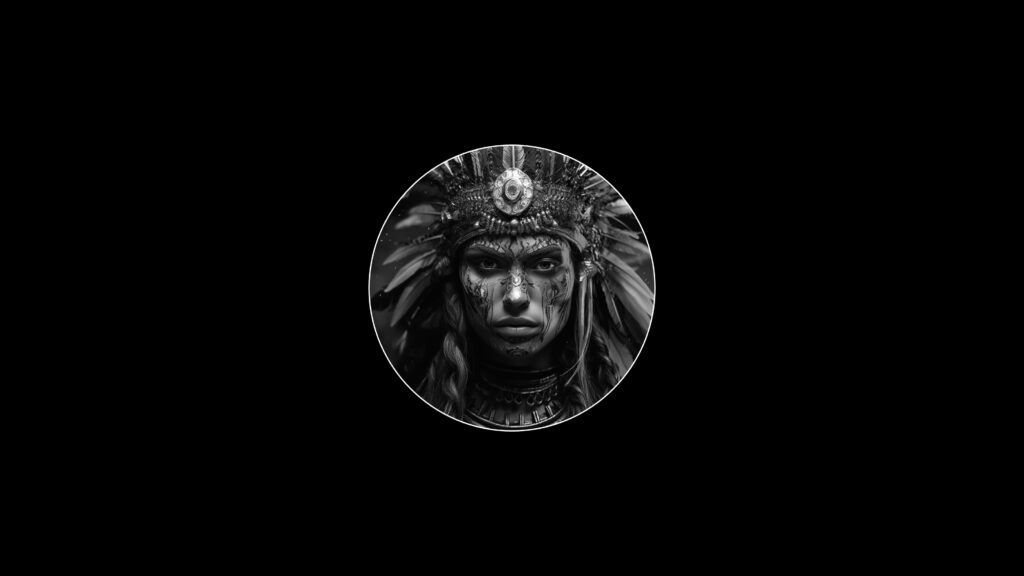
The Warrior Dharma emphasizes the courage to face life’s challenges and embrace change.
Warriors are noble protectors of their community who stand up for justice and righteousness, even in the face of danger and adversity.
They strive to achieve balance between strength and power, fortitude and kindness. Warriors understand that true strength comes from within, not from external forces or material possessions.
This type often goes beyond the surface-level characteristics of strength and leadership. Here’s some in-depth insight:
- Sensitive Underneath: Despite their tough exterior, many Warriors are sensitive and empathetic. They might hide these traits to maintain their strong image, but it’s often this hidden sensitivity that fuels their drive to protect and serve others.
- Struggle with Vulnerability: Opening up and showing vulnerability can be challenging for Warriors. They’re accustomed to being the rock for others, so expressing personal doubts or fears might feel unnatural to them.
- Ethical Dilemmas: A Warrior’s strong sense of duty and justice may lead them to face complex ethical dilemmas. They often wrestle with balancing personal morals with societal expectations or laws, which can lead to deep internal conflicts.
- Need for Purpose: The Warrior needs a cause or purpose to fight for. Without a clear mission or goal, they might feel lost or restless. This drive is more than ambition; it’s a profound need to align their lives with a higher purpose or principle.
- Risk of Burnout: The intense focus and dedication that mark the Warrior type can lead to burnout if not managed. Warriors might push themselves too hard and neglect self-care, which can have serious consequences for their mental and physical health.
- Potential for Compassionate Leadership: While some may stereotype Warriors as aggressive or domineering, they have the potential to be compassionate and inspiring leaders. When their strength is paired with wisdom and empathy, they can lead others with a powerful blend of courage and kindness.
- Spiritual Connection: In some interpretations, the Warrior’s path isn’t just about physical or societal battles but a spiritual journey. The fight is metaphorical, representing inner struggles and the pursuit of personal growth or enlightenment.
The Warrior Dharma Type is multifaceted, and understanding these layers can provide a more comprehensive and nuanced view of this path.
Whether in personal development or business leadership, recognizing these deeper traits can help those who identify with or interact with Warriors connect and grow in more meaningful ways.
The Educator
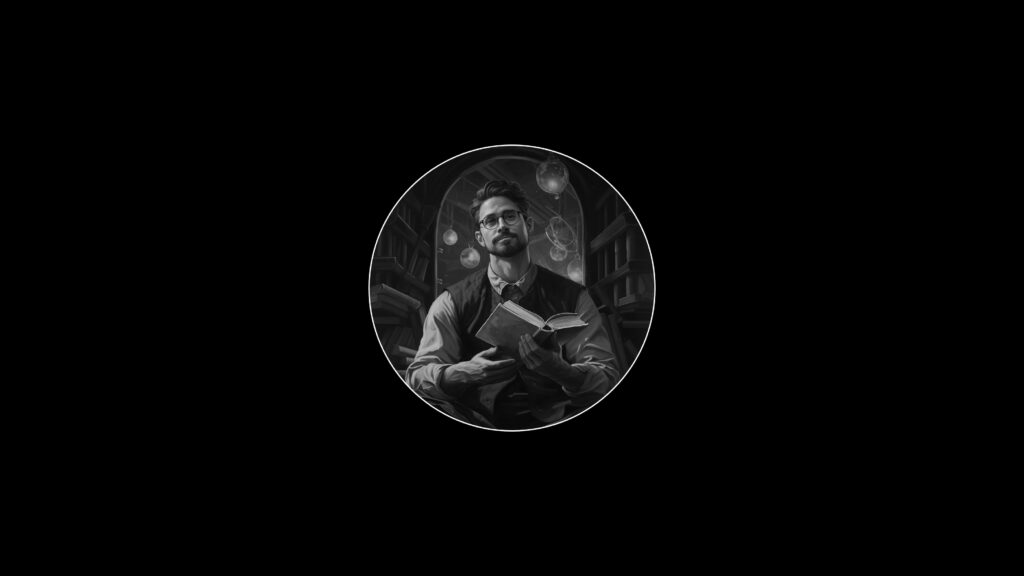
The Educator is a type of Dharma that seeks to share knowledge and wisdom.
They are passionate about learning new things and sharing those discoveries with others.
Their desire for knowledge drives them to become lifelong learners, always exploring and discovering new ideas.
They are patient teachers, and their concern for others’ wellbeing motivates them to show kindness and understanding.
Here’s a deeper look into the often overlooked characteristics and insights of The Educator:
- Lifelong Learners: Educators are not just teachers but are often engaged in constant learning themselves. Their curiosity and quest for understanding drive them to explore new subjects, not just for professional growth but for personal fulfillment as well.
- Emotional Intelligence: Effective Educators often possess high emotional intelligence. They must understand their students’ needs, fears, and motivations, and this requires empathy, self-awareness, and strong interpersonal skills.
- The Burden of Responsibility: The role of an Educator often comes with the burden of shaping minds and lives. This responsibility can be both rewarding and daunting, leading to intense personal reflection and a strong sense of purpose.
- Potential for Burnout: Similar to Warriors, Educators may face burnout due to their deep commitment to others. They invest emotionally in their students’ success, which can be draining, especially when faced with challenges or setbacks.
- The Role of Mentorship: Beyond formal education, many Educators naturally gravitate toward mentorship roles, guiding others not just in academic matters but in life skills and personal growth. They often build lifelong relationships with those they guide.
- Holistic Approach: True Educators often see beyond the curriculum. They understand that education isn’t just about facts and figures but developing the whole person, including emotional, social, and even spiritual aspects.
- Challenges with Boundaries: Striking the right balance between involvement and detachment can be challenging for Educators. Their desire to help can lead them to become too invested in others’ lives, potentially crossing professional or personal boundaries.
- Potential for Innovation: The best Educators often think outside the box, creating unique and engaging ways to impart wisdom. They’re not just instructors but innovators, seeking fresh approaches to help others learn and grow.
- Spiritual Dimension: For some Educators, their work may be connected to a deeper spiritual calling. They see their role as a vocation, serving a higher purpose by guiding others towards understanding and enlightenment.
The Educator’s path is rich and varied, and these insights illuminate the deeper dimensions of this Dharma Type.
They are not just transmitters of information but facilitators of growth, guides, mentors, and often unsung heroes in the lives of many.
The Merchant
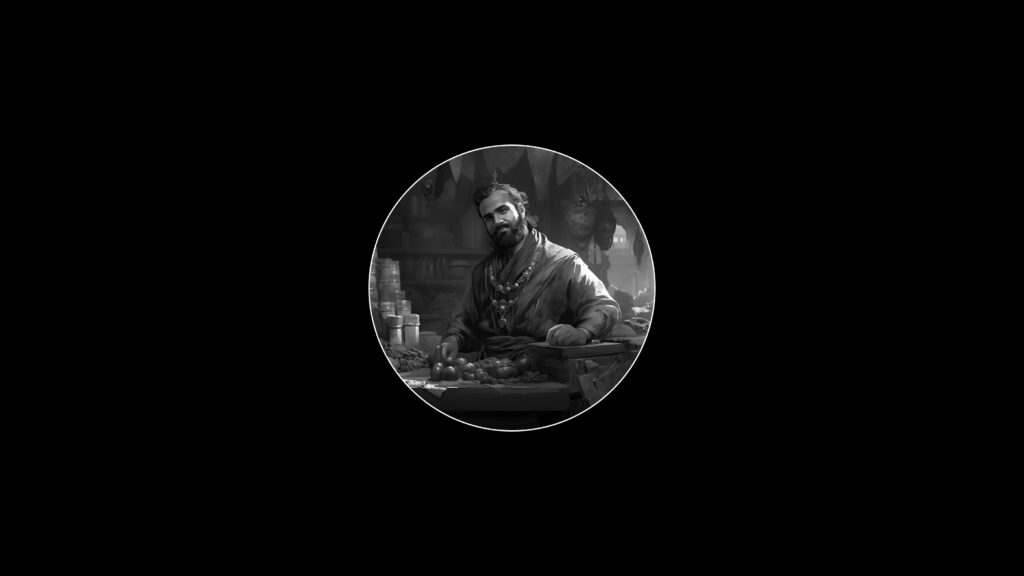
The Merchant is the Dharma Type that puts service to others at the heart of their work.
They understand that success is not only achieved through wealth or power but also by providing goods and services of value to their customers.
They thrive on building relationships with those they serve, seeking out innovative solutions tailored to individual needs. Merchants are often highly organized, reliable, and resourceful problem-solvers.
More than just business-savvy individuals, Merchants have a broad range of characteristics that may not be immediately obvious:
- Relationship Builders: Merchants are often skilled at building and maintaining relationships. Their success is not merely a product of their commercial acumen but also of their ability to connect, empathize, and build trust with others.
- Emotional Intelligence: Similar to The Educator, Merchants often have high emotional intelligence. They must understand the needs, desires, and fears of others to negotiate and engage effectively. This insight often extends beyond business into personal life.
- Risk Takers: Merchants are often willing to take calculated risks. Whether in business or personal decisions, they weigh the odds and are not afraid to step into the unknown if they see a potential reward.
- Balance of Heart and Mind: Merchants often strive to find the perfect balance between logic and emotion. They need to be practical and analytical, yet they also rely on intuition and gut feelings. This blend of head and heart is key to their success.
- Potential for Ethical Dilemmas: The line between profit and ethics can be thin and challenging to navigate for Merchants. They may face complex moral decisions, and how they approach them can define their character and success.
- Desire to Give Back: While focused on trade and profit, many Merchants are also drawn to philanthropy and social causes. They often see their wealth or influence as a means to contribute to society and make a difference.
- Innovation and Adaptation: The best Merchants are not just followers of trends; they are often pioneers in their fields. They see opportunities where others don’t and adapt quickly to changing circumstances, turning challenges into advantages.
- Sense of Community: Successful Merchants often recognize the importance of community, whether it’s their immediate business network or a broader social context. They understand that success isn’t just individual but connected to a wider ecosystem.
- Possibility of Material Attachment: The pursuit of success and wealth can sometimes lead Merchants to become overly attached to material possessions. This attachment can be a double-edged sword, driving them forward but also potentially leading to imbalances in other areas of life.
- Spiritual Connection to Trade: For some Merchants, trade isn’t just a business but a spiritual practice. They see the exchange of goods and services as a form of connection and a way to bring value to the world.
The Merchant Dharma Type is complex and multifaceted, encompassing a wide range of characteristics that go beyond mere business acumen.
Understanding these nuances can provide a more comprehensive view of what it means to be a Merchant, whether in the traditional commercial sense or in any role that involves negotiation, relationship-building, and exchange.
The Laborer
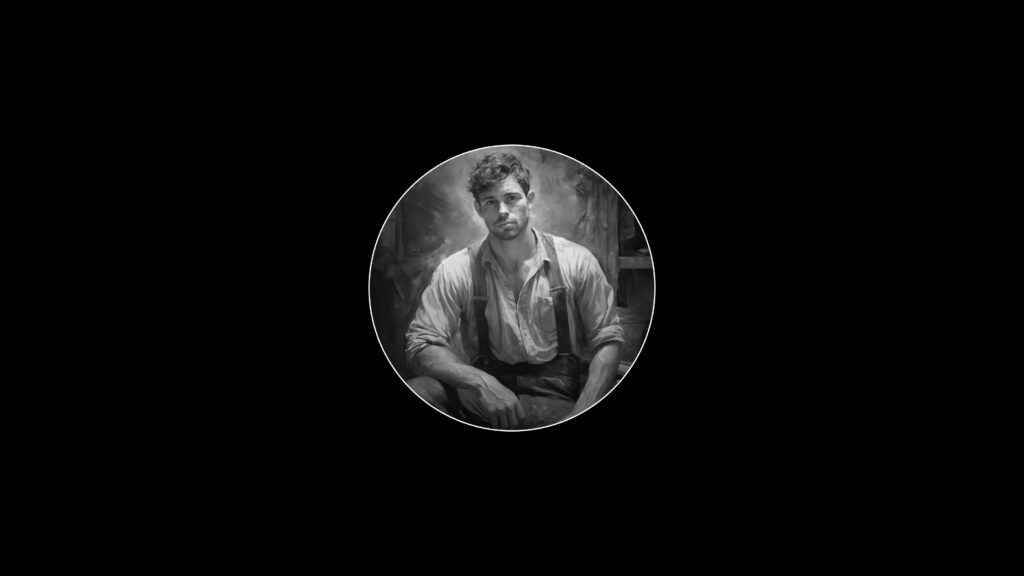
The Laborer Dharma Type is a powerful force of dedication and hard work.
They are the backbone of society, willing to put in the effort and labor that drive progress and development.
They take satisfaction in their contribution to society, understanding that it’s their efforts that make things happen.
Laborers understand that success happens through consistency and effort, not just good luck.
The Laborer Dharma Type is a valuable and often underappreciated path that’s about more than just physical work. Here’s a deeper look into the complex traits and insights of The Laborer:
- Service-Oriented: Laborers often have a profound sense of service. They derive satisfaction from completing tasks, helping others, and contributing to a greater goal. Their work is not just a means to an end but also an expression of their values.
- Physical Wisdom: The connection between body and work is deeply ingrained in many Laborers. They often possess an intuitive understanding of physical processes and mechanics, which can be seen as a form of wisdom in itself.
- Loyalty and Dependability: Laborers often exhibit strong loyalty and dependability. They take pride in their work and are committed to delivering it to the best of their abilities, even in challenging circumstances.
- Community Connectors: The role of a Laborer often puts them at the heart of a community, whether it’s a construction team, a neighborhood, or a family. They play a vital role in connecting people and often act as the glue that holds groups together.
- Risk of Being Overlooked: Laborers can sometimes be overlooked or undervalued, especially in modern society where physical labor may be seen as less prestigious. Recognizing their contributions and worth can be a vital part of their self-respect and job satisfaction.
- Mindfulness in Action: Some Laborers find a form of mindfulness in their work, turning physical tasks into a meditative practice. This connection between body and mind can lead to a deep sense of fulfillment and peace.
- Potential for Burnout: The physically demanding nature of many Laborer roles can lead to wear and tear on the body and mind. Self-care, proper rest, and recognition of their limits are vital to maintaining their well-being.
- Adaptability and Problem-Solving: Despite a stereotype of simple tasks, Laborers often need to be highly adaptable and creative in their problem-solving. Whether it’s fixing machinery or finding efficient ways to complete tasks, they must think on their feet.
- Ethical Considerations: Laborers often face ethical considerations such as fair treatment, proper compensation, and working conditions. These issues can have profound impacts on their lives and their view of their roles.
- Connection to Earth and Nature: Laborers who work closely with the land, such as farmers or gardeners, often develop a deep connection to the Earth and natural cycles. This connection can become a spiritual dimension of their work.
The Laborer Dharma Type is rich with nuances and depths that go far beyond mere physical labor.
They are builders, connectors, problem-solvers, and often the backbone of many essential processes in our society.
The Outsider

The Outsider Dharma Type is a unique blend of both independence and togetherness.
They often possess an outsider’s perspective, which is both an asset and a vulnerability. On the one hand, this can give them access to new ideas and innovative solutions that others may not be able to see.
On the other hand, they often feel isolated and misunderstood by their peers.
The Outsider Dharma Type is perhaps the most enigmatic and complex of the five. It’s marked by non-conformity, innovation, and often, a feeling of living on the fringes of conventional society.
Let’s explore the deeper insights of The Outsider:
- Non-Conformist Nature: Outsiders often defy societal norms and expectations. This non-conformity is not just rebellion for its own sake but a genuine pursuit of authenticity and individuality.
- Innovators and Visionaries: Many Outsiders are driven to create, innovate, and see possibilities where others might not. They often bring fresh perspectives to art, science, business, or any field they engage with.
- Challenges with Social Integration: The very traits that make Outsiders unique can sometimes lead to feelings of isolation or misunderstanding. Finding a community or network that appreciates their uniqueness can be both challenging and vital for their well-being.
- Embrace of Solitude: Unlike isolation, which can be a struggle, many Outsiders also find solace and creativity in solitude. It’s often in these quiet moments that they connect most deeply with their inner selves and their most innovative ideas.
- Spiritual Seekers: The Outsider’s path is often marked by a spiritual quest. Whether through religion, philosophy, or personal exploration, they seek deeper truths and connections that transcend everyday existence.
- Advocates for Change: Many Outsiders feel a strong drive to advocate for social, political, or environmental change. Their unique perspectives often lead them to see injustices or opportunities for improvement that others may overlook.
- Balance of Freedom and Responsibility: Outsiders often value personal freedom highly but must balance this with responsibilities and commitments. Finding this balance can be a central challenge and journey in their lives.
- Risk of Misunderstanding: Outsiders’ unconventional thoughts and behaviors may lead to misunderstandings or judgments from others. They often have to navigate these perceptions and find ways to express themselves authentically without alienation.
- Healers and Guides: Some Outsiders find their calling as healers or guides, using their unique insights to help others on their personal or spiritual journeys. This can be a fulfilling and meaningful expression of their talents.
- Connection to Nature and the Universe: A sense of connection to something greater, whether it’s nature, the universe, or a higher power, is often a prominent theme in the lives of Outsiders. They may find deep inspiration and insight from these connections.
The Outsider Dharma Type is multifaceted and often misunderstood. They are not merely rebels or loners but often visionary thinkers, creators, and seekers.
Understanding the depths and nuances of The Outsider can provide a more empathetic and comprehensive view of their unique path, whether in personal development, artistic expression, or societal impact.
Frequently Asked Questions
After going through all the information above, you may still have some questions or need further guidance.
In this section, we have compiled a list of frequently asked questions about Dharma types to help you better understand and discover your own Dharma. Let’s explore these questions:
Can my Dharma type change over time?
Absolutely, your Dharma type can change over time, and that’s part of the beauty of human growth and evolution. Let’s delve into this a bit more.
In the Vedic tradition, life is mapped into different stages, often reflecting our natural growth and shifting priorities.
As we move through these life cycles, our spiritual life and personal Dharma can evolve.
We might start as a Laborer type, working hard to build something, but later find ourselves drawn to the Merchant type, where the focus might be more on relationships and exchange.
This evolution is not only natural but encouraged, as it represents our personal myths and inner journeys. It aligns with the core tenets of lawful life and can reflect our moral and religious duties.
The educator’s values in Vedic life mapping emphasize the whole person, recognizing that we are complex beings with different needs at various stages of life.
Sometimes, life situations force us to adapt, and we may find ourselves taking on a complementary type to what we were before.
Or we may discover that a previously incompatible type now feels right. The shifts in our Dharma type can be as multifaceted as the Merchant types or as grounded as the Laborer types.
Our Dharma type’s changing nature reminds us that nothing is set in stone. Like the creation myth leading to world law, it evolves, reflects our growth, and helps us navigate life’s myriad situations.
Aligning with our evolving Dharma type helps us live a more fulfilling life, staying true to our spiritual life, religious values, and moral duties.
So yes, your Dharma type can and often does change as you grow, learn, and embrace new stages of life. It’s a rich and inspiring aspect of human existence that ties into the very fabric of life’s journey.
How can I align my life with my Dharma type?
Aligning your life with your Dharma type is a deeply personal and transformative journey that can bring more purpose and meaning to your existence. Let’s break down how you might do that.
1. Understand Your Type: Start by thoroughly understanding what your Dharma type is. Whether you’re a Warrior, Educator, Merchant, Laborer, or Outsider, each type has unique qualities and paths. Dive into the characteristics, strengths, and challenges of your type.
2. Integrate Core Tenets: Next, consider the core tenets or values associated with your Dharma type. These can be like guideposts in your life. For example, an Educator might focus on lifelong learning and sharing wisdom, while a Laborer might find purpose in hard work and connection to the Earth.
3. Align with Stage of Life: Recognize that alignment with your Dharma type may involve stages of life or Vedic life mapping. Understanding where you are in your life cycle can provide clarity on how to embody your type.
4. Embrace Spiritual Life: If your Dharma type has a spiritual dimension, explore how you can connect with that on a deeper level. This might mean engaging in practices or communities that resonate with your type.
5. Balance Incompatible Types: You might also recognize some incompatible types or traits within yourself. This is normal! The key is to find a complementary balance that honors your primary Dharma type without suppressing other aspects of yourself.
6. Explore Personal Myths and Journeys: Your personal myths and inner journeys are part of this process. They can provide rich insights into why you resonate with a particular Dharma type and how you might authentically express it.
7. Seek Guidance: Don’t hesitate to seek guidance or use tools available to you, such as books or professionals versed in Dharma types. They can provide personalized insights and support.
8. Embrace Change: Finally, recognize that your alignment with your Dharma type may change over time. As you grow, learn, and face new life situations, your relationship with your Dharma type might evolve, and that’s beautiful.
Aligning with your Dharma type is not a one-size-fits-all process but rather a rich exploration of who you are and how you connect with the world.
It’s a path that involves introspection, courage, and often a beautiful blend of moral duties, religious values, and personal growth.
Are there any resources or tools available to help me discover my Dharma type?
Finding your Dharma type and aligning your life with it is a deeply personal journey, but there are several resources and tools that can aid you along the way. Here’s a clear and insightful breakdown:
1. Online Quizzes: There are many online quizzes specifically designed to help you determine your Dharma type. By answering a series of thought-provoking questions about your interests, values, and personality, these quizzes can point you towards the Dharma type that resonates with your essence.
2. Books on Dharma Types: Some authors have delved deeply into this subject, providing comprehensive guides that explore the characteristics, nuances, and paths related to each Dharma type. For starters, you can read the Bhagavad Gita, which outlines the four core tenets of Dharma.
3. Personal Reflection and Journaling: Don’t underestimate the power of introspection. Taking time to reflect on your values, passions, strengths, and challenges can be a transformative tool in itself. Writing in a journal or engaging in mindfulness practices can help you uncover insights about yourself that align with a particular Dharma type.
4. Community Engagement: Sometimes, engaging with communities or groups that share similar spiritual or personal growth interests can lead to valuable insights. Sharing experiences and learning from others might help you resonate with a specific Dharma type.
5. Integrating Core Values: Consider exploring the core values associated with each Dharma type and reflecting on which ones resonate with you most. This exploration can be a powerful way to connect with your unique path.
Remember, discovering your Dharma type is not a rigid or fixed process.
It’s an evolving journey that may shift and change as you grow and embrace new stages of life.
Embracing this journey with an open heart, a curious mind, and the courage to explore various resources can make it a rewarding and transformative experience.
Conclusion
Discovering your Dharma type can be a transformative journey that helps you understand your unique purpose and path in life.
By exploring the characteristics and qualities associated with each Dharma type, you can gain insight into your strengths, challenges, and areas for growth.
It is important to remember that your Dharma type is not fixed and can evolve over time as you gain new experiences and perspectives.
By aligning your life with your Dharma type, you can live a more fulfilling and purposeful life.
There are various resources and tools available, such as quizzes and books, that can assist you in discovering your Dharma type. Embrace the journey of self-discovery and embrace your unique Dharma.


